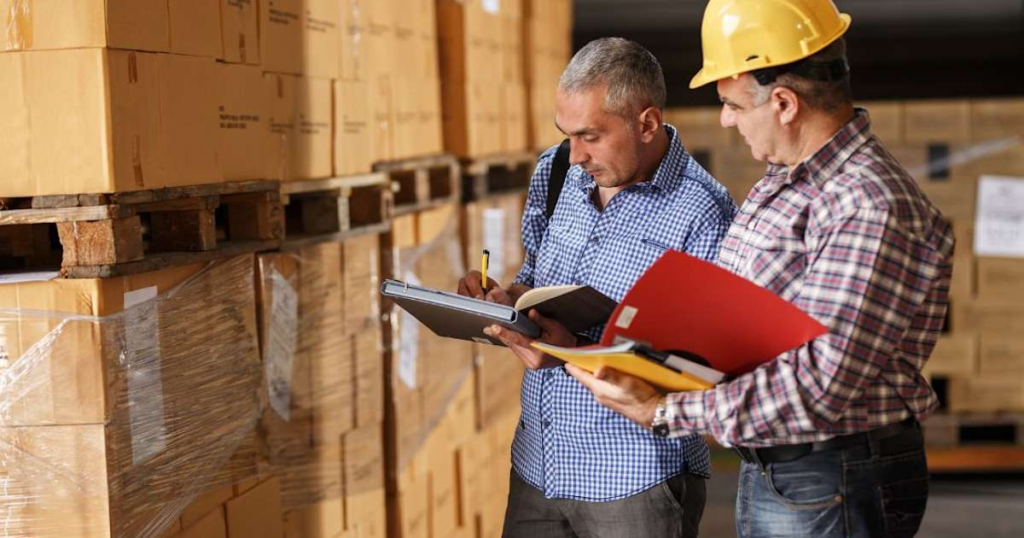Preparing for Customs Inspections: What Every Sourcing Agent Should Know

Navigating international trade comes with its fair share of challenges, and customs inspections rank among the most unpredictable. Whether you’re shipping from Asia to North America or from Europe to Southeast Asia, sourcing agents must be well-prepared for customs scrutiny to ensure smooth cross-border transactions.
In this article, we explore how sourcing agents can proactively prepare for customs inspections, reduce delays, and build a compliant, efficient supply chain for their clients.
For businesses sourcing internationally, partnering with experienced sourcing professionals like those at ProductSourcing-Agent.com is key to handling customs efficiently and minimizing risk.
What Is a Customs Inspection?
A customs inspection is the examination of goods entering or leaving a country to verify that they comply with national laws and regulations. This may include checks for:
- Accuracy of customs declarations
- Product labeling and documentation
- Compliance with safety, environmental, or trade laws
- Prohibited or restricted items
- Counterfeit or intellectual property violations
There are two types of inspections:
- Random Inspections: Selected without cause
- Targeted Inspections: Triggered by suspicion, improper paperwork, or history of noncompliance
Failure to pass an inspection can result in shipment delays, fines, or even confiscation—making preparation vital for sourcing agents.
Why Customs Readiness Is Critical for Sourcing Agents
A sourcing agent’s reputation hinges on reliability and operational excellence. If products are delayed at customs or flagged for violations, it reflects poorly on both the supplier and the client-facing agent. By ensuring documentation is perfect and compliance protocols are in place, agents help their clients avoid costly setbacks.
👉 See how sourcing agents assist with compliance and customs support
1. Master the Required Documentation
The first line of defense against customs delays is complete and accurate documentation. Essential documents include:
- Commercial Invoice
- Packing List
- Bill of Lading or Air Waybill
- Certificate of Origin
- Import/Export Licenses (if applicable)
- HS Codes (Harmonized System Codes)
- Product Compliance Certificates (CE, FCC, etc.)
Mistakes in these documents—such as wrong tariff codes, missing signatures, or incorrect declared values—can immediately trigger a customs inspection.
✅ Tip: Partner with a sourcing agency like ProductSourcing-Agent.com to ensure all paperwork complies with both origin and destination country regulations.
2. Verify Product Compliance Standards
Customs officials may inspect goods to verify that they comply with health, safety, and regulatory requirements. Depending on the product category, this may include:
- CE Certification (EU)
- FCC Approval (U.S.)
- RoHS, REACH, or ISO Compliance
- Food and Drug Administration (FDA) registration
- Phytosanitary certificates for agricultural items
As a sourcing agent, confirm with your manufacturer that all necessary compliance testing is done before shipping.
🔗 How sourcing agents ensure supplier verification and product compliance
3. Accurately Classify Goods Using HS Codes
Incorrect or vague HS (Harmonized System) codes are among the most common causes of customs inspection delays. Sourcing agents must:
- Use specific and up-to-date codes
- Align descriptions with codes (e.g., “cotton T-shirts” vs. “clothing”)
- Avoid under-declaring values to reduce tariffs (this can be flagged as fraud)
📦 Example: A smartwatch classified incorrectly as a simple “digital device” may evade proper inspection—leading to fines or seizure later.
4. Maintain Transparent Communication with Freight Forwarders
Freight forwarders are often the first line of contact when a shipment is flagged for inspection. Sourcing agents should work closely with freight partners to:
- Monitor status updates in real time
- Respond immediately to customs requests
- Provide missing documents without delay
If you’re sourcing for multiple clients, streamline communication using a platform or logistics dashboard.
👉 Work with a logistics-savvy sourcing agent
5. Anticipate Country-Specific Regulations
Each country has its own customs protocols. For example:
- United States: Customs and Border Protection (CBP) may demand extra details for electronics or textiles.
- European Union: Strict on RoHS and CE-certified goods.
- India or Brazil: High documentation scrutiny and longer processing times.
Sourcing agents must keep up with updates and changes in destination countries to avoid unpleasant surprises.
6. Use Pre-Shipment Inspections (PSI)
Pre-shipment inspections by third-party quality control companies or sourcing agents can catch potential issues before customs does. A proper PSI ensures:
- Product labeling and quantity match invoices
- Items comply with specifications and safety standards
- Packaging is robust and marked per customs regulations
Learn more about inspection services available through product sourcing agents
7. Consider AEO or Trusted Trader Programs
Some sourcing agents and freight providers are part of Authorized Economic Operator (AEO) programs. These programs:
- Speed up customs clearance
- Reduce inspection frequency
- Improve trade flow predictability
If your sourcing agent partners with AEO-certified logistics companies, this is a major bonus for seamless global sourcing.
8. Plan for Inspection Delays in Your Timeline
Despite the best efforts, customs inspections may still happen. Always account for:
- Buffer time in delivery schedules
- Clear communication with your clients about potential delays
- Emergency documentation access (via cloud-based platforms)
Transparency is the cornerstone of trust between sourcing agents and their clients.
Conclusion
For global sourcing agents, preparing for customs inspections is part of delivering professional, dependable service. It’s not enough to find the right product—you must also get it across borders safely and legally.
By ensuring complete documentation, verifying product compliance, and partnering with qualified logistics providers, sourcing agents can minimize risks, maintain client trust, and optimize delivery timelines.
🌍 Ready to streamline your international sourcing with professional compliance support?
👉 Contact the experts at ProductSourcing-Agent.com today